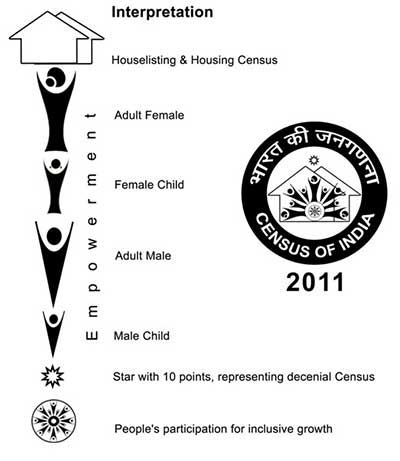Relevance: GS-2: Government Policies and Interventions for Development in various sectors and Issues arising out of their Design and Implementation.
Key Phrases: Registrar general of India, NPR
Why in news?
- Census first phase, NPR data collection put off till September
Analysis:
What is census exercise?
-
Population Census is the total process of collecting, compiling, analyzing and disseminating demographic, economic and social data pertaining, at a specific time, of all persons in a country or a well-defined part of a country.
-
The decennial Census is conducted by the Office of the Registrar General and Census Commissioner, Ministry of Home Affairs.
-
The decennial Census of India has been conducted 15 times, as of 2011.
-
Beginning in 1872 under British Viceroy Lord Mayo, the first complete census was taken in 1881 under Ripon
Features of Indian census
- Census 2021 will be conducted in 18 languages out of the 22 scheduled languages (under 8th schedule) and English
- The option of “Other” under the gender category will be changed to “Third Gender”.
- Data is proposed to be collected through a mobile app by enumerators
- Census is conducted under the provisions of the Census Act, 1948.
- The information collected during the population Census is so confidential that it is not even accessible to the courts of law.
Significance of Census
- The Indian Census is the largest single source of a variety of statistical information on different characteristics of the people of India
- Researchers and Demographers use census data to analyze growth and trends of population and make projections.
- Good Governance: The data collected through the census is used for administration, planning and policy making as well as management and evaluation of various programmes by the Government.
- Demarcation: Census data is also used for demarcation of constituencies and allocation of representation to Parliament, State legislative assemblies and the local bodies.
- Better Access for Businesses: The census data is also important for business houses and industries for strengthening and planning their business for penetration into areas, which had hitherto remained, uncovered.
- Giving Grants: Finance Commission provides grants to the states on the basis of population figures available from the Census data.
About the logo of Census 2011
Issues with census
- The past four decades have seen a decline in the quality of data and growing delays in its release despite technological innovations.
- The legal foundation of the census has remained largely unchanged since newly independent India enacted permanent census legislation in 1948
- Old methods and questionnaire
- Data collection has not kept pace with improvements in data processing technology due to the lack of motivated and adequately trained enumerators.
Brief about NPR
- The NPR is a database containing a list of all usual residents of the country. Its objective is to have a comprehensive identity database of people residing in the country.
- It is generated through house-to-house enumeration during the “house-listing” phase of the census, which is held once in 10 years.
- While the census is legally backed by the Census Act, 1948, the NPR is a mechanism outlined in a set of rules framed under the Citizenship Act, 1955.
- The data for the NPR was first collected in 2010 along with the house listing phase of Census 2011.
Way ahead
- Reduce the number of questions- Nearly half of the ‘House listing and Housing Schedule’ of the census is devoted to questions on household amenities and assets
- There is a need to demystify census operations and build trust in the impartiality of the exercise, better scrutiny of electoral records and welfare schemes to weed out bogus beneficiaries.
Source: The Hindu







